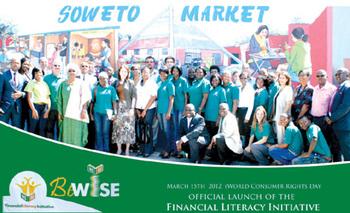Context
While Namibia's per capita income of USD 5,840 (2013) makes it an upper-middle income country in the World Bank’s classification, it still faces problems of high unemployment and poverty, and great social inequality, which it inherited at independence in 1990, and cannot be solved by the current moderate economic growth. To overcome these challenges, the country needs urgently to create more jobs in order to provide people with better incomes.
Namibia’s overarching policy document, Vision 2030, foresees 'a prosperous and industrialised Namibia [that enjoys] peace, harmony and political stability.' It emphasises welfare and human development, equitable growth, a stronger industrial sector and modernised agriculture. For a more conducive economic and political environment based on Vision 2030, the government has formulated policies for economic development including an Industrial Policy, the Namibia Financial Sector Strategy and the current National Development Plan 2012 to 2017 (NDP4). The main goals of the plan are to achieve sustained high economic growth rate, job creation and increased income equality.
The strategy for executing the Industrial Policy, known as ‘Growth at Home’, was developed by the Ministry of Industrialisation, Trade and SME Development (MITSD) and adopted by the national Cabinet in 2014. The three intervention areas of ‘Growth at Home’ are: supporting value addition in production, securing market access and improving the investment climate.
Objective
New Namibian firms have been established and existing ones are growing. Local value addition, employment and income opportunities are increased.


